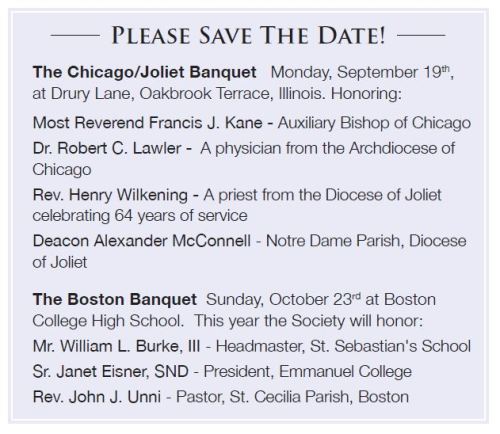Fr. Bryan Hehir, Archdiocese of Boston’s Secretary for Social Services–who has served on panels with partial-birth abortionists and gay/lesbian activists and who lectured for a Socialist, pro-Communist think-tank back in the 1980’s, now adds to his portfolio by participating in a panel discussion on Tuesday, January 3, 2012 with Rep. Barney Frank in Newton, MA. Here’s the listing in the Boston Globe:
Frank talk During his long career, US Representative Barney Frank has been nothing if not outspoken. We imagine his impending exit from Washington won’t change that. See for yourself at Truth, Lies and Politics, a panel discussion featuring Frank, journalist Robert Kuttner, and Father J. Bryan Hehir. Author Leonard Fein moderates the program exploring the relationship (or lack thereof) between politicians and truth-telling. Jan. 3, 7:30 p.m. $15, $12 students and seniors. Leventhal-Sidman Jewish Community Center, 333 Nahanton St., Newton. 617-965-5226, www.bostonjcc.org
Robert Kuttner is the co-founder and current co-editor of The American Prospect, which was created in 1990 as “an authoritative magazine of liberal ideas.” To give you a sense for Kuttner’s ideology, here’s a column he wrote in June 2010, “Gay-Marriage Envy.”
Sometimes I wish my personal overriding cause were gay rights. Then I could get up in the morning and feel that my side was making real progress.
It is thrilling to see how a movement for human decency has made immense gains. Executive leadership married to millions of acts of personal courage in a strong grass-roots movement can be transformative. New York Governor Andrew Cuomo is the hero of the hour for using all his political skills to move just enough Republicans in the New York Legislature into the Yes column on same sex marriage.
It’s a joy to see progress on same-sex marriage and the broader acceptance of sexual difference, a fight that is far from over.
Barney Frank, openly gay, opposes Catholic Church positions on every moral issue under the sun–he supports gay marriage, is rated 100% by NARAL, indicating a solid pro-abortion voting record (he voted “no” on banning partial-birth abortion), and more.
Does anyone imagine for a second that Bryan Hehir’s going to use this as an opportunity to try and catechize Barney Frank and Mr. Kuttner and put forward Catholic teachings? Not if the past is any indication.
The Bryan Hehir Exposed blog told you in April 2010 how Bryan Hehir keynoted a Catholic conference along with a priest who advocated for “gay priests.”
On marriage and so-called “gay rights,” Fr. Hehir has never once said publicly that he opposes “gay marriage.” But he did say in May of 2011 that he supported having children of openly gay/lesbian parents attend Catholic schools, and he did serve on a panel at Regis College with lesbian feminist theologian, Mary Hunt, where he was quoted as follows:
…in twentieth-century Catholicism, teachings on sexuality have been “a chronically afflicted area,” and there are issues that need to be examined and re-examined…dissent is an expected part of the theological tradition of which we are a part…He ceded to Dr. Hunt discussion of any perception of the influence and role of women…
In 2010, Bryan Hehir also spoke at Boston College on a panel with a partial-birth abortionist about Catholic Conscience exemptions, and never even mentioned the word “abortion.” Here’s what he said.
“If you think of the conscience clause protecting the professional, then you have to think about access to service on the part of clients of various kinds, patients, or clients of social service agencies.
Just to be clear, this “access to service” described by Fr. Hehir meant abortion, but he never stated that. Instead, this senior Archdiocesan official said Catholics should “have to think” about how the woman will get access to abortion services.
Unless we choose well on this, we could harm the profession, the social system. And clearly, if we don’t choose well, we could harm the individual who needs precisely the service.
Once again, “service” meant abortions. Was Fr. Hehir concerned about harming the woman who needs the abortion service to have her unborn baby killed? Or was he concerned about harming the baby who needs the service to be aborted? He emphasizes the possible harm to the profession, the pluralism of actors in the social system and the individual who needs the abortion service, but says nothing about the risk to the individual conscience of the medical professional.
Near the conclusion we got Fr. Hehir’s own redefinition of the conscience clause. A conclusion of a talk is usually what the speaker wants to drive home, to have the audience remember most. His takeaway, summed up in the bottom line:
My basic position is, conscience clauses provide an essential political legal component to adjudicate deeply held convictions and positions in this pluralistic society. I think the resolution requires defining the issues broadly. You’ve got to pay attention to all the actors, their beliefs, their interests, and the duties involved and recognize that conscience clauses will limit the rights of others to some degree.
Then there’s Fr. Hehir’s past involvement with the Marxist-oriented, gay-agenda-supportive Washington, DC think tank, the Institute for Policy Studies. Fr. Hehir gave multiple talks there in the 1980s, including speaking in their Washington School series, “Matthew, Marx, Luke, and John” in October of 1983.
As you’ll see by this content on Religious Left Exposed, during the 1980s, the IPS served as a base of operations for those opposed to President Ronald Reagan’s anti-communist foreign policy. It was dedicated to the establishment of revolutionary Marxist and anti-American regimes in Central and Latin America and elsewhere and describes itself as the nation’s oldest progressive multi-issue think-tank. A  New York Times Magazine article from April of 2001 exposes IPS as founded on radical, revolutionary and Marxist principles, talking about one contingent described by the IPS director as coming almost completely from a Marxist or liberation basis. One IPS journal has featured “articles celebrating Communist victories in Laos and Angola.”
New York Times Magazine article from April of 2001 exposes IPS as founded on radical, revolutionary and Marxist principles, talking about one contingent described by the IPS director as coming almost completely from a Marxist or liberation basis. One IPS journal has featured “articles celebrating Communist victories in Laos and Angola.”
Here’s the Washington School series he spoke in (see p. 2).
Matthew, Marx, Luke and John: Theology of the Oppressed
Worldwide poverty and exploitation have brought religious ideological support for conservatism to a crisis. Liberation theologies—particularly black, feminist and Latin American—provide an ideological counterthrust on behalf of the insurgent resistance. This course, while focusing on the present through the prism of Vatican II, will discuss ancient and medieval precedents of peasant insurgency and rebellion, together with the practical and ideological leadership provided by priests and lay Christians who, basing themselves in the Bible, defined and ideology for the oppression, not the oppressors. Topics will include:
- ancient and medieval theology: practice and theory
- parallels in feminist and Latin American theology
- the Catholic Bishops’ Letter on War and Peace
- the future of the Christian alliance with Marxism
For attending that series, participants got a free pass to their series on liberation theology. Among the other speakers in the 1983 series was the radical lesbian feminist theologian, Mary Hunt. This wasn’t just a one-off talk; Fr. Hehir spoke at the IPS more than once. He also received their Letelier-Moffitt award, named after a Marxist-Leninist. Here is a short IPS slide presentation from Religious Left Exposed that highlights a number of troubling revelations we barely have time to share. There’s more–in 1984 they hosted “Sister Boom-Boom” of the “Sisters of Perpetual Indulgence,” a group of “Queer Nuns” who mocked the Catholic Church. The history of the IPS on their website proudly conveys how “Rita Mae Brown wrote and published her path-breaking lesbian coming-of-age novel Rubyfruit Jungle while on the staff in the 1970s.”
When I complained and others complained about Bryan Hehir in 2010, eventually, the result was that the Vicar General at the time scolded us for criticizing his friend, Bryan Hehir. I’m sure they’ll just go ahead and let him speak on the panel with Barney Frank and Mr. Kuttner and have this senior archdiocesan official and “trusted advisor” to Cardinal O’Malley give credibility to the speakers and their agenda. No problema.



